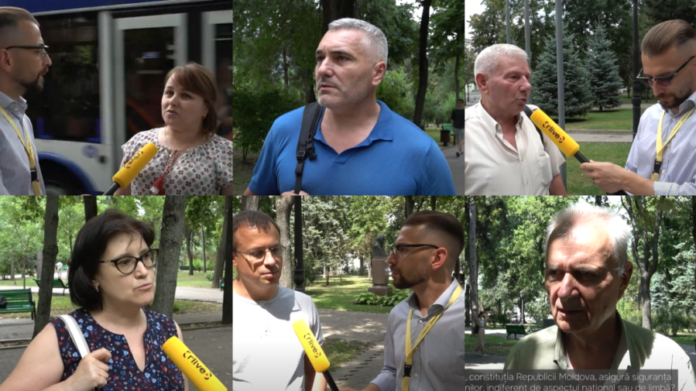Citizens of the Republic of Moldova share their views on the Constitution’s significance as part of the “Moldova That Unites Us” campaign. While most deeply respect the Supreme Law, many admit that much of the population remains unfamiliar with its text.
The campaign highlights Moldovans’ strong attachment to constitutional values and stresses the ongoing need for legal education in a society that continues to evolve.
Some citizens call the Constitution “the country’s number one document” and a guarantee of fundamental rights and freedoms. One interviewee said, “Young people need to know this law; competent individuals crafted and amended it. If changes become necessary, we trust they will make them responsibly.”
Others suggest the Constitution needs improvement, noting that “the Moldovan people are a hybrid,” shaped by diverse geopolitical and social legacies. Another participant added, “We change too quickly and not always in the right direction, but in the end, we always return to the idea of unity.”
FOR THE MOST IMPORTANT NEWS, FOLLOW US ON TWITTER!
Several people admit they have never read the Constitution but still recognize its importance. A young woman from Chisinau explained, “It allows us to speak freely, in the language we feel most comfortable with. That wouldn’t be possible without a law that protects us.”
For many, the Constitution forms “the foundation of our people.” They believe that Constitution Day should serve not only as an observance but also as a moment to reflect on democratic progress.
At the same time, some express skepticism. One man said, “The Constitution is just a written document. Everything depends on how we apply it, on people and the social context.” Others point out that laws do not always apply equally to everyone.
Many agree that educating young people about the Constitution remains essential to fostering civic responsibility and awareness of rights. A student stated, “It’s important to know what protects us because only then can we demand respect for those rights.”
Older citizens recall the excitement and hope surrounding the Constitution’s adoption. One participant concluded, “Life goes on. We can adapt the Constitution, but we should never change it abruptly.”
A Brief History of Moldova’s Constitution
Work on the Constitution began in 1990, but the country approved it only in 1994. The Supreme Law rests on principles of democracy, transparency, and pluralism. Its authors drew inspiration from historical texts such as the Pravilele of Vasile Lupu, Gheorghe Asachi’s calls for a constitutional monarchy, and Dumitru Sturza’s 1822 republic project.
The Constitution builds on six core principles:
- Moldova must be a constitutional state, not socialist or capitalist.
- The people hold supreme authority through representative power.
- Political pluralism guarantees democracy.
- Legislative, executive, and judicial powers remain separate.
- The state guarantees both private and public property rights.
- Human rights represent the highest value and deserve full respect.


